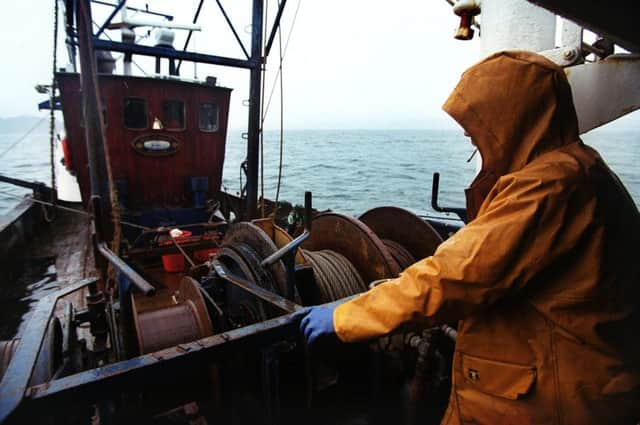Fisheries mustn’t discard progress as ban comes into force


This year is an important one for Scottish fisheries, with preparations under way to implement the next step of the discards ban. One of the major measures agreed under the recent reform of the common fisheries policy (CFP), which regulates European fisheries, this will make the throwing overboard of unwanted commercial fish illegal across Europe. It will be phased in over the next three years starting on 1 January, 2016.
If you’re one of the 870,000 people who supported Hugh Fearnley Whittingstall’s Fish Fight campaign, then you might think: “Good, job done.” Discarding healthy fish and undermines the long-term sustainability of stocks, often removing fish before they have had a chance to reproduce. However, as with many things in fisheries, there is often more to it than meets the eye.
Advertisement
Hide AdAdvertisement
Hide AdThere are a number of reasons fish might get discarded – fish may be over quota (the amount of fish fishermen are allowed to land), under size, command too low a price making them economically unviable to land, or they don’t meet complicated catch rules.
To add to the complexity, many of the fisheries in the North Sea are mixed, with a number of different species coming up in the same net. This makes it even more challenging if you have quota for one species and not another. These complications mean that solutions to meet the discard ban require tailoring.
One of the main solutions is the use of more selective fishing practices, both in terms of what gear a vessel uses and where and how it operates. Changing fishing gear can massively reduce levels of discarding – even in a mixed fishery.
Potential revision of quota management and avoiding areas where juvenile (or spawning) fish are found, together with sensible rule changes, can also help ensure fewer unwanted fish are coming up in nets and being discarded.
In the lead up to these changes, fishermen across Scotland, have been trialling and adopting innovative fishing practices. More selective gear has been developed which means that there are real choices as the discard ban approaches. However, the levels of uptake remain low in some sectors and if the discard ban is to be brought in effectively, this will need to be addressed.
This preparation means that Scotland is in a much better place than many other European member states, thanks in part to the focused management approach that has been in place for some years.
For almost a decade, the Scottish Government has brought together fishermen, their representatives, scientists and other stakeholders, such as WWF, to take decisions on managing Scottish fisheries. This has resulted in trends in fishing mortality decreasing and fish stocks increasing.
In fact, 78 per cent of the 20 key Scottish commercial species are now considered to be fished at sustainable levels. This reflects well on the governance system.
Advertisement
Hide AdAdvertisement
Hide AdHowever, while stocks are still in need of recovery and building, the challenge is not to jeopardise this good progress with poor implementation of the discard ban.
The discard ban is one of the biggest shifts seen in fisheries management across Europe. To continue delivering positive results, we need to see several things including a clear plan to get more selective practices and fishing gear in operation, clarity on when different species need to be landed as the discards ban is phased in and mechanisms to monitor how the ban is being delivered in practice.
There are definitely challenges but if we get it right the benefits can be significant. Scottish Government studies estimate the potential benefits of the discards ban equate to as much as £26 million a year as a result of greater numbers of fish in the water meaning larger quotas and in turn greater income.
The ultimate goal of the discards ban is to reduce the waste of unwanted fish, resulting in more fish remaining in the sea.
This will be good for the marine environment as a whole but also good for the economy and provide a more sustainable future for Scotland’s fishing industry.
• Lang Banks is director of WWF Scotland wwf.org.uk/scotland
SEE ALSO